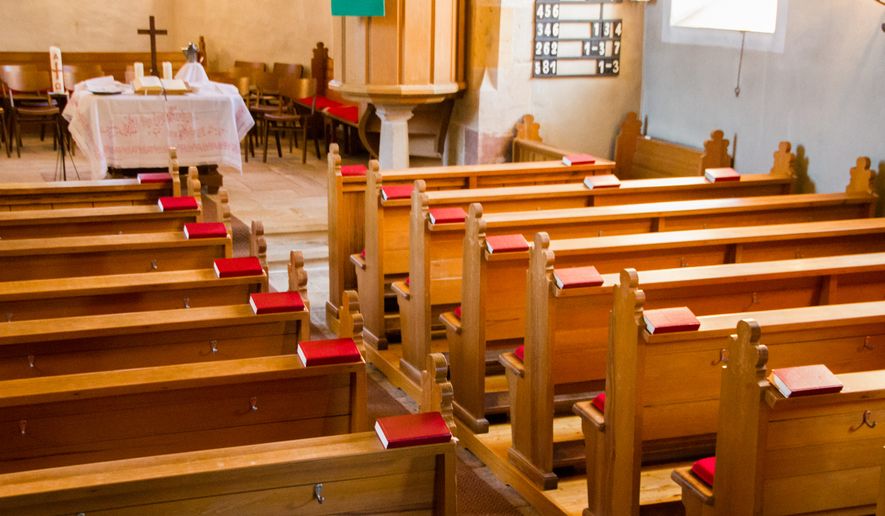Residents in the Seattle area attend church the least among those living in big cities, according to new Census Bureau statistics.
A majority of residents — 63.8% — said they never attend a house of worship or go less than once a year. San Francisco, at 62.7%, and Boston, at 55.9%, clock in at second and third place, respectively, while 53% of folks in the Washington metro area said they never attend.
The most observant of the 15 biggest metropolitan areas in the country are Atlanta, at 42.3% nonattendance — meaning 57.7% do attend services regularly — Houston, at 41.8%, and Dallas, with 40.5%.
The Census Bureau numbers come after a year in which surveys have shown dropping participation in organized religion and even belief in God.
A Gallup poll in May reported that 59% of 18- to 34-year-olds said they believe in God. That number was a significant component in Gallup’s overall finding that American spirituality had reached a 22-year low.
Overall, just 74% of Americans said they believe in God, down from 90% in 2001, Gallup reported.
In December, the Pew Research Center said 22% of Americans who regard themselves as “spiritual” added the words “but not religious” to that identification. Another 48% said they were “spiritual and religious,” for a total showing of 70% of Americans.
At the end of 2021, however, Pew said self-identified Christians made up 63% of Americans, a 9-point drop from 72% 10 years earlier. In the same survey, 29% said they had no religion at all.
Future prospects may not offer much hope: In February, researcher George Barna said preteens are not being raised in homes that honor the Bible or present its message, marking a society “on the precipice of Christian invisibility.”
And sociologist Ryan Burge this week noted data showing dropping religious attendance among high school students in the University of Michigan’s “Monitoring the Future” survey. The study of 9th, 10th and 12th graders found that 29% of 12th graders in 2022 said they never attend, almost double the 15% who gave that answer in 1995. Over the same period, the percentage who said they were weekly attendees dropped from 32% in 1995 to 22% in 2022.
Census officials for the first time included a question about religious participation in the latest Household Pulse Survey, a continuing canvas of Americans beginning in 2020 to measure “how the pandemic has affected people’s lives.” Sixteen federal agencies, including the Bureau of Labor Statistics, the departments of Defense, Housing and Urban Development, and two Agriculture offices, are partners in the project.
The first 2024 phase of the survey, designed to track “how emergent social and economic issues are impacting households across the country,” took place from Jan. 9 to Feb. 5. Survey invitations were sent to 1,055,024 households, with 68,544 responding.
• Mark A. Kellner can be reached at mkellner@washingtontimes.com.




Please read our comment policy before commenting.